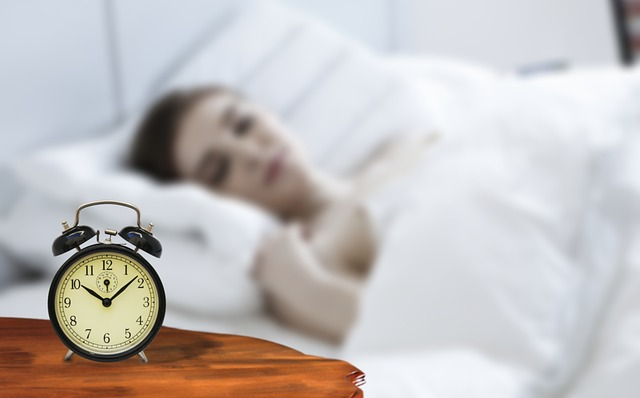How To Fall Asleep Fast: 22 Tips To Beat Insomnia

The clocks went backwards last night. Did you enjoy your extra hour in bed? From today, the sun sets earlier, and days get significantly shorter. What a perfect time to tweak your daily routines and shake your sleep habits. As you prepare for the colder months, let’s look at ways to help you fall asleep fast.
The Constant Quest for Better Quality, Restful Sleep!

Insomnia and sleep disturbances are common. According to researchers, approximately 1 in 5 people across the world struggle to get a full night’s sleep. These numbers are on the rise. Across European countries, in 2021, only 15% of people reported poor sleep quality. However, in 2022, this number increased to 35%. Similarly, in 2020, 14.5% of Americans had frequent difficulties with sleep latency. In 2022, this number jumped to 32%.
So, weather you have trouble sleeping or would like to improve your sleeping habits, you came to the right place. In this blog post, we’ll delve into 22 tips and techniques that can help you beat insomnia and drift into dreamland more quickly.
Is it Normal to Fall Asleep Immediately?

We all yearn for a deep, rejuvenating sleep. However, it’s not typical for most people to fall asleep as soon as they hit the pillow. Normally, sleep has several stages, including a period of light sleep before progressing into deeper sleep stages.
However, there can be exceptions, and some individuals may fall asleep quickly and enter deeper sleep faster than others. It’s essential to consider your individual circumstances and consult a healthcare professional if you have concerns about your sleep quality or unusual sleep behaviour.
The Time It Takes to Fall Asleep and Overall Sleep Health

The time it takes to fall asleep is known as sleep onset. It is an essential aspect of overall sleep health. It’s the duration between when you get into bed and when you actually fall asleep. This time can vary from person to person. If you fall asleep relatively quickly (Just under 10 minutes), it’s often a sign of good sleep health. It indicates that your body is naturally and efficiently transitioning from wakefulness to sleep.
Conversely, if you struggle to fall asleep within a reasonable time, it may be a sign of sleep difficulties. Various factors can cause prolonged sleep onset. I will tell you about them in just a moment.
Important! If you experience issues related to the time it takes you to fall asleep and stay asleep, you must address them to ensure a good night’s sleep.
Why Can’t I Sleep at Night?

Sleep difficulties can have various causes, and they differ for each person. Here are some of the main reasons for experiencing sleep problems:
Worries, stress, and anxiety can keep your mind active at night, making it hard to relax and fall asleep fast.
Mental Health Disorders, for example, depression and bipolar disorder, can also negatively affect sleep patterns.
Some medical conditions (chronic pain, sleep apnea or restless leg syndrome) and other health conditions (ADHD) can contribute to developing sleep difficulties.
Certain medicines, including sleep medicine, may have side effects that interfere with your body clock and affect your sleep. Some sleep medicines used for the long term are known to increase the body’s tolerance to their sedative effect and consequently contribute to chronic insomnia. It’s essential you consult with your doctor if you suspect this is the case and for your regular sleep medicine reviews.
Inconsistent sleep patterns, caused by irregular work hours and night shifts, can lead to Circadian Rhythm Disorders. Such disruptions in your body’s internal clock can disturb your body’s natural sleep-wake cycle. This makes it challenging to get a good night’s rest.
Poor sleep hygiene, like using phones before bedtime, having coffee or having big meals near sleep time, can really mess up your ability to sleep and stay asleep.
Alcohol and Substance Use can interfere with your sleep cycle, which can reduce the quality of your sleep.
Ageing: As we get older, our sleep patterns can change, leading to more frequent awakenings during the night.
Hormonal changes and fluctuations may also affect sleep latency and staying asleep throughout the night. This may especially affect women during pregnancy or menopause.
Various environmental factors may also cause worse sleep quality. These include noise, light, temperature, uncomfortable mattress or pillow, snoring partner, etc.
If you want to find the most effective solutions to improve sleep quality, you need to identify the specific cause of your sleep difficulties. If you’re experiencing chronic sleep problems, consider consulting a healthcare professional or sleep specialist for a thorough evaluation and personalized guidance.
Good Quality Sleep Begins the Minute You Start Your Day

Achieving a good quality sleep begins from the moment you open your eyes in the morning. It’s a holistic process that involves choices throughout the day. Engaging in physical activity, managing stress, and mindful eating, maintaining a regular sleep schedule all play crucial roles in setting the stage for a restful night.
So, remember, the journey to improved sleep quality starts with your morning routine and continues with every decision you make throughout the day. Sweet dreams are the result of a well-rounded approach to wellbeing. Here are some things you could do throughout the day to support good sleep hygiene.
Kickstart Your Day for Success and Better Sleep at Night in These 5 Reliable Steps

Establish a Morning Routine
Try to wake up at the same time every day, even on weekends. Consistency reinforces your body’s circadian rhythm.
The circadian rhythm is a natural and recurring internal sleep-wake cycle that repeats approximately every 24 hours. You may know it better as the “body clock.” This rhythm influences various physiological and behavioural processes, including sleep patterns, body temperature, hormone production, and even cell regeneration.
Get Some Sunlight In the Morning
Go for a walk outside. Exposure to daylight suppresses the release of the sleepiness hormone melatonin, promoting the production of a neurotransmitter called serotonin. Serotonin helps regulate mood, appetite, and various other functions.
In the evening and into the night, your brain starts converting serotonin into melatonin. Melatonin signals to your body that it’s time to get ready for sleep. It helps the onset and maintenance of sleep while also regulating your circadian rhythm.
Exercise to Promote Sleep at Night
Working out in the morning boosts mood, energy, and overall alertness. It promotes the release of endorphins, which contribute to your general wellbeing throughout the day. Exercise also raises your body temperature. When it subsequently drops after a few hours, this drop signals to your body that it’s time to sleep.
Get up and move around every few hours to keep your body active. This can naturally tire your body, making you more inclined to relax and rest at bedtime. However, avoid intense physical exercise close to bedtime. It may increase your alertness and make it harder to fall asleep.
Eat A Nourishing Breakfast
A wholesome, tasty breakfast is a powerful tool for enhancing your body’s sleep-wake cycle. When you start your day with a nutritious meal, it gets your metabolism going. It also stabilizes your blood sugar levels, boosts your mood, and provides essential nutrients. In general, good eating habits throughout the day can contribute to relaxation and set the stage for a peaceful night’s sleep.
Create a To-Do List
Do it first thing in the morning or, if possible, the evening before. When you organize and write down tasks on a to-do list, you will reduce anxiety and clear mental space. It will help you to offload your mind from the things you need to do instead of worrying about forgetting or not completing them.
This mental decluttering will help you prevent overthinking at bedtime and promote a sense of relaxation before sleep. It will also improve your time management. Organizing tasks will give you a more structured approach to completing them during the day. This, in turn, will reduce the pressure to remember everything at night.
5 Most Powerful Daytime Practices for Dreamy Nights

These powerful daytime practices will help to improve your sleep onset latency and sleep quality throughout the night.
Mind Your Diet Throughout the Day
Your diet can significantly influence your night’s sleep. We already mentioned nutritious breakfast; however, your food choices during the day are equally important. Choosing heavy or spicy meals close to bedtime can give you discomfort, indigestion, and disrupted sleep. Opt for lighter dinners several hours before sleep to allow for easier digestion.
If you feel peckish before bedtime, choose foods that can help you fall asleep fast. These, for example, include kiwi, cherries, milk, fatty fish, nuts, and rice.
Choose Your Beverages Wisely
Drinking stimulating drinks such as caffeine and sugary drinks (as well as processed foods) later in the day will increase the possibility of sleep deprivation. If you want to improve your sleep quality, it is best to avoid these beverages after 4 p.m.
If you feel thirsty close to bedtime, drink water or other drinks that may help you sleep. Some of the best drinks helping to fall and stay asleep include herbal teas (chamomile, valerian or Ashwagandha tea), warm milk, tart cherry juice, and Golden Milk, also known as turmeric tea.
Remember, although proper hydration is crucial for our overall wellbeing, consuming large amounts of fluids close to bedtime might result in sleep disruptions due to bathroom visits.
Time Your Meals Thoughtfully
Irregular meal times, skipping meals or eating late can affect your body’s natural rhythm, therefore potentially impacting the sleep-wake cycle.
Equally, if you eat heavy or spicy meals too close to bedtime, you may experience discomfort and indigestion, making it harder to fall asleep.
Large meals or high-sugar foods late at night can cause fluctuations in your blood sugar levels, potentially leading to energy spikes or crashes that may disrupt your sleep.
Additionally, eating late at night might interfere with your body’s natural metabolic processes during sleep, potentially impacting the quality of your rest.
Look After Your Emotions and Manage Stress Levels
Doing so throughout the day will help you alleviate emotional turbulence and significantly contribute to better sleep quality at night. Here are some ways you could achieve it:
Prioritize self-care and develop healthy coping mechanisms. It will help you achieve emotional balance and reduce stress. Master deep breathing techniques and allocate time for self-care activities and hobbies that rejuvenate you. These may include reading, sports, or listening to calming music.
Share your feelings with your family or trusted friends. You may also consider seeking support from a counsellor or therapist. This is a very good option when you feel you cannot share your struggles with your close ones or if stress becomes overwhelming or persistent.
Talking about your stress will often lessen its impact.
Keeping a positive mindset throughout the day. As much as possible, focus on things that bring you joy and which you can impact. A more positive outlook will help to reduce anxiety and worries that might disturb your sleep.
Ensure you take regular breaks during the day: This will also help you to refocus and boost your productivity and imagination, consequently helping to relax and reduce stress.
Avoid Napping During the Day
If you’re having trouble sleeping at night, limit daytime naps or keep them short (20-30 minutes).
Long or late naps can disrupt your natural sleep-wake rhythm, making it challenging to fall asleep at your usual bedtime.
Additionally, they can reduce the depth and quality of nighttime sleep, leading to sleep related anxiety.
12 Nighttime Rituals for Better Sleep Quality

If you are anything like me, you may be tempted to use the last minutes of your day to catch up with things and tasks you did not have the chance to do. However, what you do shortly before bedtime can encourage good, restful sleep or may cause you to stay awake all night.
Here are twelve relaxing practices and evening rituals that can help you fall asleep faster, sleep better at night and wake up refreshed in the morning.
Establish a Consistent Bedtime Routine and Stick to It
A wind-down routine before bed will signal your body that it’s time to get ready for sleep.
A consistent daily bedtime routine, even at weekends, may feel hard initially. But you will get used to it eventually. To make it easier, try going to bed earlier and finding your ideal time to fall asleep.
Dim the Lights to Fall Asleep Faster
Create the right ambience in your bedroom. It will aid your good night’s sleep. Turn down bright lights. Instead, during your evening routine, try using low glow lights to set the mood and signal your body that it is the time to prepare for night’s rest.
Using low lights will help your body gradually relax and promote the production of the sleep hormone melatonin. For proper sleep hygiene, when in bed, turn off all your lights (including the ones on electronic devices), as doing so will help you fall asleep faster.
Stop Working or Using Electronic Devices in Bed
Reduce exposure to screens (phones, computers, TVs) at least one hour before bedtime. The blue light emitted by electronic devices limits the production of melatonin and interferes with your sleep.
By working or using electronic devices in bed, you may also increase your mental activity, stimulate the brain, and release adrenaline in your body. This would make it more difficult to unwind and fall asleep.
Additionally, associating the bed with work or screen time can make it harder for the brain to recognize the bed as a place for relaxation and sleep. Therefore, frequent working in bed could lead to sleep disorders.
Identify the Things That Keep You Up at Night
When you understand what things keep you tossing and turning at night, it’ll be easier to fix them. Make a list of these things and try to find solutions. It could be as simple as setting aside time in your diary to think about those issues in more detail and make a plan to solve them.
Play Relaxing Music
Playing relaxing music will create a calming environment, lower your stress levels, and encourage sleep by soothing the mind and helping to induce relaxation.
Maintain a Comfortable Sleep Environment
Tidy up your bedroom. Ensure it’s conducive to sleep with a comfortable mattress, proper ventilation, and minimal noise and light. Where possible, introduce a relaxing scene for better room ambience. Ensure you sleep in a cool room (15.6 to 20 degrees Celsius) and that your bedding keeps your body temperature just right for falling asleep fast.
Master Progressive Muscle Relaxation (PMR) techniques
This technique involves tensing and then relaxing a range of muscle groups in the body, leading to deep relaxation. This deep muscle relaxation method helps in falling asleep because it reduces physical tension and stress held within the muscles, calming the mind and consequently making it easier to drift off to sleep.
Stretch, Do Yoga or Gentle Relaxation Exercises Before Bed
Like the Progressive Muscle Relaxation techniques, relaxing and warm exercises will relax and calm your body. Yoga will relax your mind, help you breathe deeply and prepare you for restful sleep.
Embrace Guided Imagery
Immerse yourself in the power of your imagination. When you focus on soothing mental imagery, you divert your attention away from worrisome or intrusive thoughts.
Guided imagery encourages positive visualization. It calms the mind and reduces stress, making it easier to fall asleep.
Practice Mindfulness Meditation
Mindfulness meditation promotes relaxation and reduces stress, helping to calm the mind before bedtime, which is conducive to falling asleep.
Mindfulness techniques may ease your anxiety by redirecting attention away from racing thoughts or worries, allowing for a more tranquil state of mind that aids in falling asleep.
Evening mindfulness meditation will activate your body’s relaxation response. It will lower your heart rate and help to reduce stress hormone levels, fostering a serene environment for sleep.
Regular mindfulness meditation will help you to improve sleep quality. It will also promote staying asleep throughout the night.
Try Using a White Noise Machine or Phone Application to Stop Distractions
External noises can disrupt your sleep. However, white noise machines or apps can help you sleep faster. The noise they produce can cover other noises, which may disturb your sleep. Besides feeling calm and relaxed, you may find yourself drifting off to sleep.
Turn Off the Clock
When you struggle to fall asleep, it is tempting to check the time. However, watching the clock can create a cycle of worry and anticipation and increase sleep anxiety. This can make it even harder to relax and fall asleep.
If you remove the clock, you will reduce the distraction and pressure of time. This will help you to unwind and let go of worries about falling asleep quickly.
Try a New Sleeping Position.
Your sleeping position matters. If you struggle falling asleep, experimenting with different sleep positions can help you find a more comfortable and relaxing posture to aid in falling asleep.
Additionally, some sleep positions can help alleviate physical pain or discomfort in bed.
Lastly, changing sleep positions may help you alleviate snoring or breathing difficulties and can divert your attention from racing thoughts.
Even smaller changes to sleep position can potentially reduce discomfort when you try to fall asleep, provide a fresh focus and make it easier for you to relax and fall asleep.
Take a Bath or Warm Shower Before Bed
A soothing bath or warm shower can relax your body and prepare it for sleep.
When you take a warm bath or shower, your body’s temperature rises. The subsequent cooldown after exiting the bath can induce drowsiness and signal the body that it’s time for sleep.
Also, warm water can relax muscles, alleviate tension, and reduce stress, putting you in a more tranquil state ideal for falling asleep.
The soothing nature of a warm bath or shower can have a calming effect on your mind. It will help to reduce anxiety and promote relaxation before bed.
In a world full of distractions and stimulations, having trouble difficulty sleeping is common. I hope you can see how your daily choices influence your sleep quality.
Worry Not! When you identify what causes you difficulty falling asleep and staying asleep at night, you can take small steps to change it.
Imagine that sense of empowerment when you get up in the morning rested and relaxed. You are ready to start another day.
You can do it. Implement the strategies in this blog post from today and welcome better quality sleep tonight.






